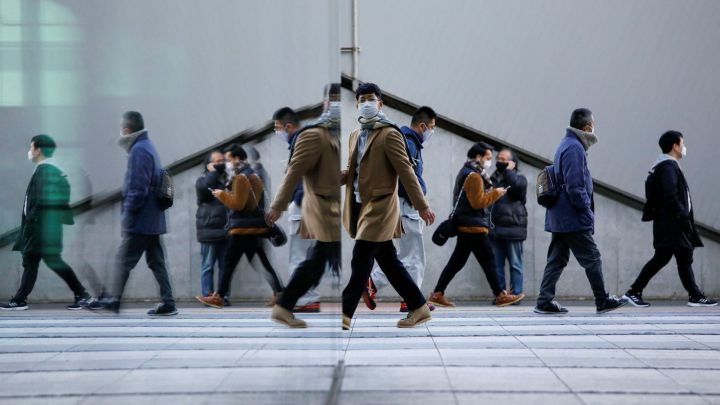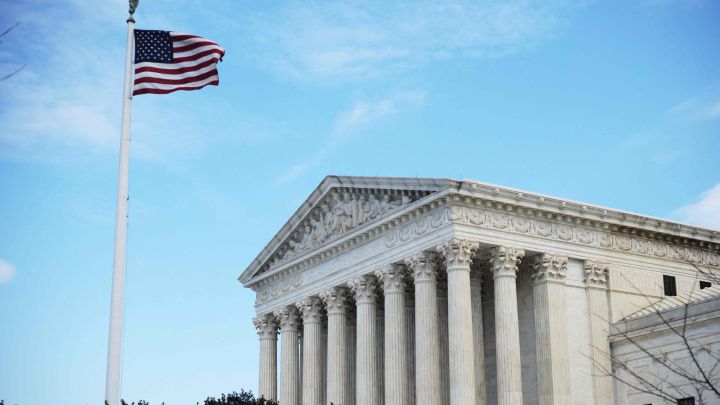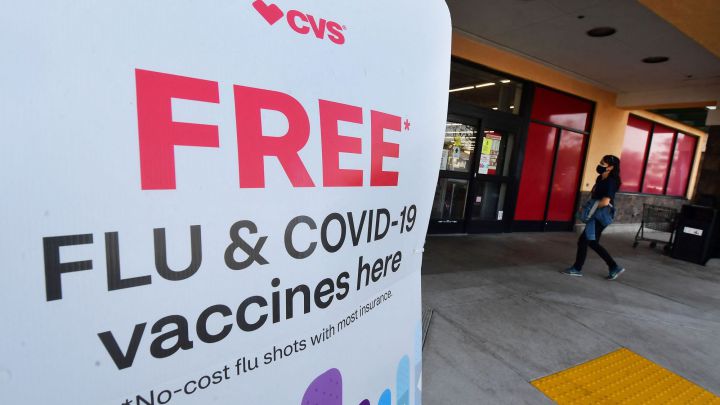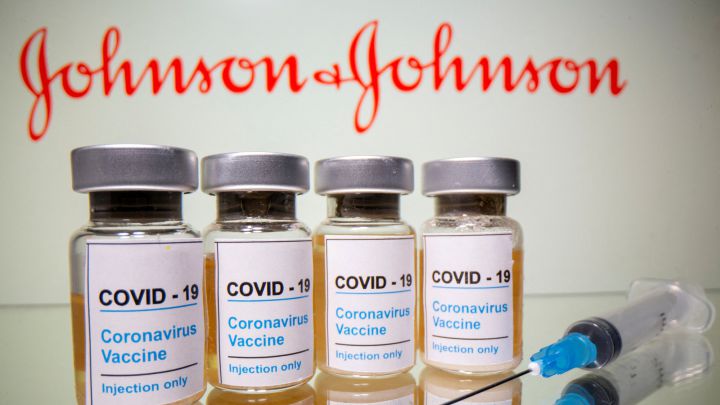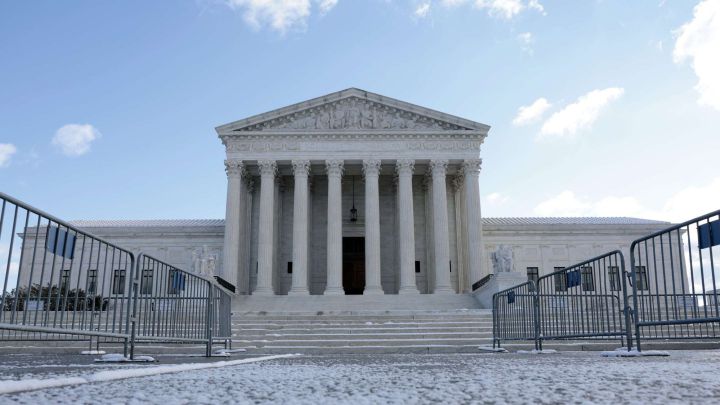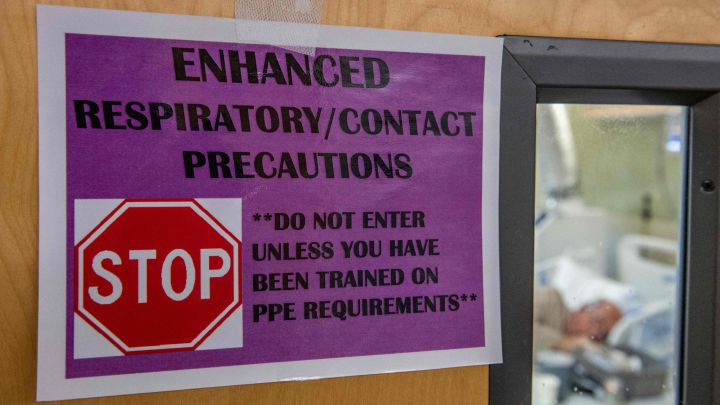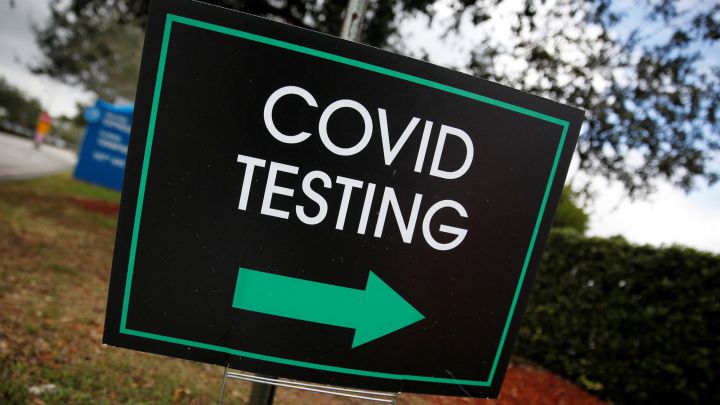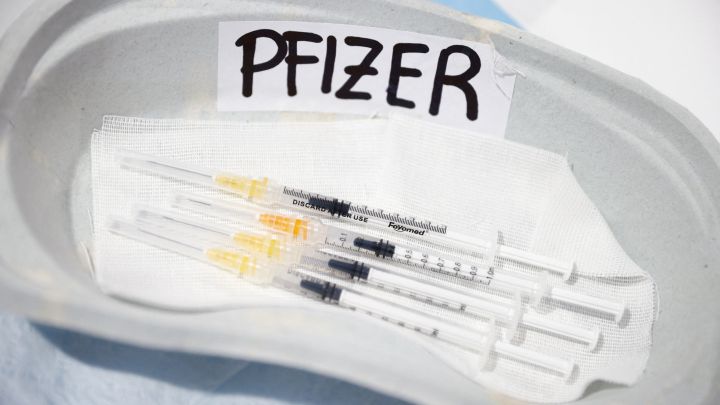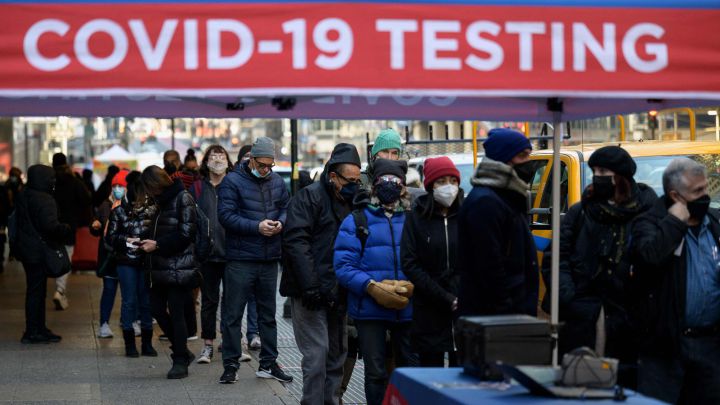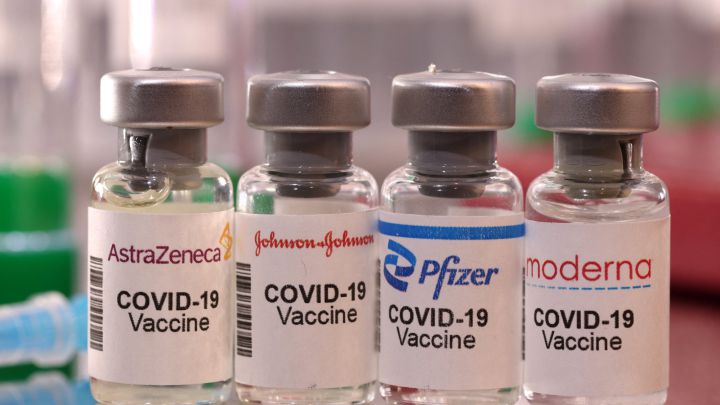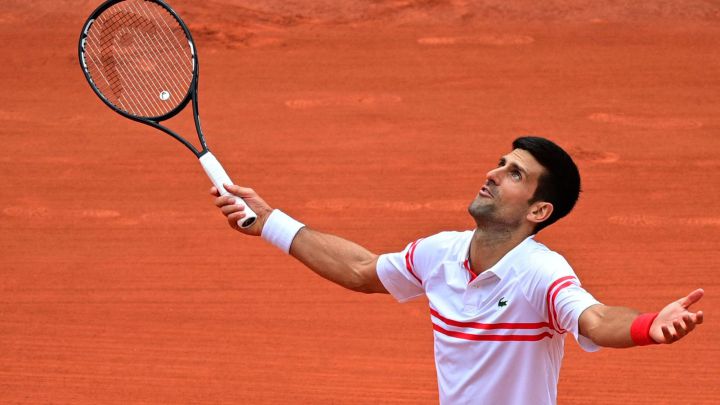Covid-19 news: vaccine mandate, Omicron symptoms, cases, free testing, quarantine... | 17 January
Latest news and information on the spread of the Omicron variant of covid-19, including updates on cases and deaths, restrictions, vaccines and boosters.
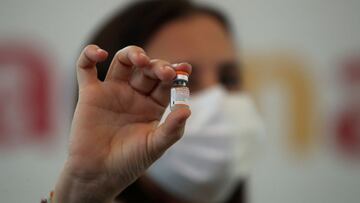
Show key events only
Omicron covid-19 variant headlines:
- Surgeon General says that Omicron cases have yet to peak in the United States
- New data shows many people with Omicron are contagious for more than five days
- China says that due to the Omicron variant, tickets to the Winter Olympic Games will not be sold to the public
- Site to order at home rapid antigen tests in the US will go live on 19 January at COVIDTests.gov
- Omicron "will find just about everybody", Dr Fauci says
- CDC confirms N95 masks are the safest
General news and information
- When can you get your covid-19 booster vaccine after an infection with Omicron?
- Public health expertsdiscuss possibilities of long covidfrom the Omicron variant.
- Vaccine mandates for workplaces with over 100 employeesstruck down by the Supreme Court
- Experts believe California will soon see its Omicron peak.
- Is it normal to experience armpit pain after receiving the vaccine?
Key websites:
- The Centers for Disease Control and Prevention
Further reading:
Israel sticks with 4th vaccine shot, sees Omicron waning in a week
Israel will continue to offer a fourth Covid-19 vaccine shot despite preliminary findings that it is not enough to prevent Omicron infections, a senior health official said on Tuesday, predicting contagions stoked by the variant will wane in a week.
The fastest country to roll out vaccinations a year ago, Israel started offering a fourth shot to its most vulnerable and high-risk groups last month. A preliminary study published by an Israeli hospital on Monday found that the fourth shot increases antibodies to even higher levels than the third but 'probably' not enough to fend off the highly transmissible Omicron.
Health Ministry director-general Nachman Ash described those findings as 'unsurprising, to a degree' as Omicron infections had been logged in some people after they received fourth doses. "But we assess that protection from serious morbidity, especially for the elderly population and at-risk population, is still afforded by this vaccine (dose), and therefore I call on people to keep coming to get vaccinated," he told Army Radio.
As elsewhere, Israel has seen Covid-19 cases spiral due to Omicron. But it has logged no deaths from the variant. "In another week we will begin seeing a drop in the numbers, but we still have two or three difficult weeks ahead," he said. Hoping to reduce strain on the economy, on Monday, Israel cut the mandatory quarantine period for Covid-19 carriers to five days.
Australia suffers deadliest day of the pandemic
Australia suffered its deadliest day of the pandemic on Tuesday as a fast-moving Omicron outbreak continued to push up hospitalisation rates to record levels, even as daily infections eased slightly.
Australia is dealing with its worst Covid-19 outbreak that has put more people in hospitals and intensive care than at any time during the pandemic. A total of 77 deaths was recorded, exceeding the previous national high of 57 last Thursday, official data showed.
"Today, is a very difficult day for our state," New South Wales (NSW) Premier Dominic Perrottet said during a media briefing as the state reported 36 deaths, a new pandemic high. Only four of those who died in NSW had received their booster shot, prompting the state's health officials to urge people to avoid delays and get their third dose soon. Thirty-three were double-dosed.
"There needs to be a sense of urgency in embracing the booster doses," NSW Chief Health Officer Kerry Chant said. "For Omicron, we know that the protection is lower and we need that next boosting to get that higher level of protection."
Amid rising hospitalisations, Victoria declared a 'code brown' in hospitals, usually reserved for shorter-term emergencies, that would give hospitals the power to cancel non-urgent health services and cancel staff leave. While authorities usually do not specify the coronavirus variant that leads to deaths, officials have said most patients in intensive care were infected with the Omicron strain, with unvaccinated young people forming a 'significant number'. Queensland said none of Tuesday's record 16 deaths in the state had received booster shots.
Of the 45 people who have died in the state due to Covid-19 since 13 December, only one had received their third dose. About 73,000 new infections were reported on Tuesday, down from a high of 150,000 last Thursday. So far, Australia has reported about 1.6 million infections since the pandemic began, of which around 1.3 million were in the last two weeks. Total deaths stood at 2,776.
How long will tests seny by the government take to arrive?
Half a billion tests will be available for order on January 19th and will be mailed directly to American households that order them.
On January 19th, Americans can visit COVIDTests.gov and begin to order their — submit their orders. Let me repeat that: It’s COVIDTests.gov.
To ensure broad access, the program will limit the number of tests sent to each residential address to four tests.
There will be tests for every household that wants to order them.
Tests will typically ship within 7 to 12 days of ordering.
While new data is showing the booster does not necessarily slow down the transmission of the more contagious Omicron variant, it has been shown to reduce the severity of illness. However, for millions avoiding ineffective has not been possible before they were able to get their third shot.
Read our full coverage for the details as well as information on how long a person is contagious with the Omicron variant.
When will the federal government begin sending tests?
The federal government will begin sending tests to homes around the country on 19 January, and many experts beleive the tests cannot come fast enough. It is increasingly difficult to find a rapid test in the US and many people have been waiting in long lines at public testing sites to confirm their diagnosis.
Beijing shuts down after Omicron cases emerge
The Chinese capital of Beijing is now under lock down after cases of the Omicron variant were identified.
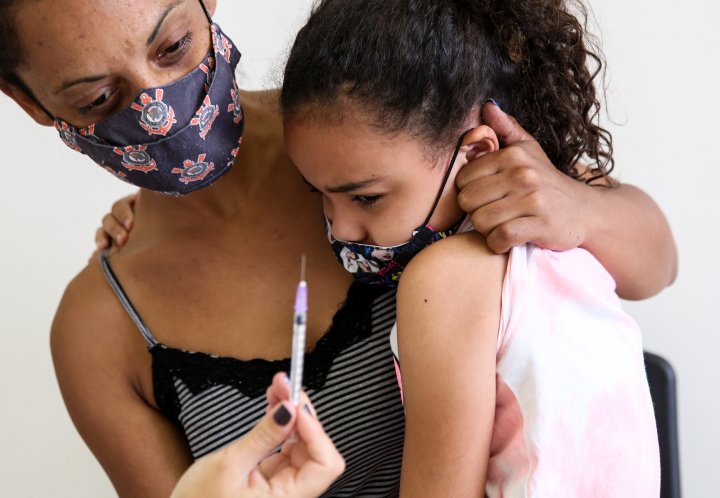
Mayara da Silva Alves receives a dose of Pfizer vaccine as part of the first group of children under 12 years of age to be part of the immunization campaign against covid-19 in Brazil.
As Omicron cases increased in the last week, State Governments decided to start vaccinating children between 5 and 11 years old.
Photo by Alexandre Schneider/Getty Images
Poland has entered a fifth wave of covid, says minister
Poland is experiencing a fifth wave of covid-19 infections, the health minister said on Monday, warning that the spread of the Omicron variant could send daily case numbers soaring to levels not yet seen in the country.
While daily case numbers have fallen since early December, the European Union's largest eastern member by population has had little respite since the fourth wave, regularly reporting over 10,000 new infections per day amid low vaccine take-up and public reluctance to follow regulations.
"We predict that the peak of infections will be in mid-February and that peak is about 60,000 cases a day," Adam Niedzielski told a news conference.
The highest number of daily cases reported since the pandemic began was 35,251 on April 1, 2021.
Niedzielski said that he expected figures released on Tuesday to show in excess of 20,000 daily cases.
French covid hospitalisations see biggest jump since Nov 2020
The number of people with covid-19 in French hospitals rose by 888 to 25,775, the health ministry said on Monday, the biggest one-day increase since early November 2020 - before the start of the country's vaccination campaign.
The last time the number of covid patients was over 25,000 was on Dec. 17, 2020.
Health ministry data on Monday also showed that the number of people with covid-19 in intensive care units rose by 61 to 3,913, after being flat to stable for four days.
France's Institut Pasteur said last week that it expected to see a peak of new Omicron variant coronavirus infections in mid-January, followed by a peak in hospital admissions in the second half of January.
On Sunday, the ministry reported more than 278,000 new infections, which was a decline of 6% against a week earlier and the first week-on-week fall this year.
On Sunday, the seven-day moving average of new infections fell to 294,452, after setting a record high of just over 297,000 on Saturday. That was the first fall time since mid-November, when new infections averaged around 10,000 per day.
The French government has backtracked on previous assertions that world number one Novak Djokovic will be permitted to play at Roland Garros despite being unvaccinated as the Emmanuel Macron administration prepares to introduce tough new restrictions for those people who choose not to receive a covid-19 jab.
Denmark ends lockdown as cases hit new record
Denmark registered a record number of coronavirus infections on Monday, as cinemas, museums and other cultural institutions reopened after a month-long covid-19 lockdown.
The Nordic country registered 28,780 new cases in the space of 24 hours and the number of coronavirus-related hospitalisations rose to 802, the highest in a year.
Still, health authorities said earlier this month that the now-predominant Omicron variant was milder than initially thought and that around 29% of those in hospital were there due to reasons other than covid-19.
Since a peak of 82 on 6 January, the number of covid-19 patients in intensive care has fallen steadily to 52 on Monday.
As a consequence, lawmakers last week agreed to ease restrictions, including reopening theatres, cinemas, museums, entertainment parks and botanic gardens, and allow limited spectators at indoor and outdoor sports events.
Denmark has high support for covid-19 vaccination, with four out of five having received two jabs and just over half of the population with three jabs.
India's main cities record sharp fall in covid-19 infections
India's capital Delhi and financial hub Mumbai have reported a big fall in covid-19 infections in the past two days and most of those who contracted the virus have recovered at home, authorities said on Monday. Mumbai's daily new infections fell below 10,000 on Sunday for the first time since early this month, after touching an all-time high of 20,971 on Jan. 7. It reported 7,895 infections late on Sunday, Mumbai's municipal corporation said.
Djokovic returns in Serbia to hero's welcome
The Serbian star arrived at Belgrade where hundreds of fans greeted the tennis number one after the scandal over his passport and entrance to Australia ahead of the Open which started today,
Moderna CEO says data for Omicron-specific shot likely available in March
Moderna Inc's vaccine candidate against the Omicron coronavirus variant will enter clinical development in the next few weeks and the company expects to be able to share data with regulators around March, CEO Stephane Bancel said on Monday.
"The vaccine is being finished ... it should be in the clinic in coming weeks. We are hoping in the March timeframe to be able to have data to share with regulators to figure out next steps," Bancel said at the World Economic Forum's virtual Davos Agenda conference.
Moderna is also developing a single vaccine that combines a booster dose against covidD-19 with its experimental flu shot. Bancel said the best case scenario was the combined COVID/flu vaccine would be available by the fall of 2023, at least in some countries.
"Our goal is to be able to have a single annual booster so that we don't have compliance issues where people don't want to get two to three shots a winter."
The 10 authorised Covid-19 vaccines currently in use
A concise reminder, courtesy of Dr. Monica Gandhi MPH, of the 10 unique Covid-19 vaccines which have been tested, trialed, approved and authorised by the WHO as of January 2022.
Vaccine name and type:
Novavax, Covavax (Protein subunit)
Pfizer/BioNTech, Moderna (RNA)
Janssen, Oxford/Astrazeneca, Covishield (Non-replicating viral vector)
Covaxin, Sinopharm, Coronavac (Inactivated)
"As we have seen in previous waves of the pandemic, London has been at the vanguard of the Omicron wave in the United Kingdom. This in part, reflects our global connectivity, the size and complexity of our city and the way we mix. Very soon after the identification of the variant in South Africa, we began looking for the variant here in the UK. Unsurprisingly, given our global connectivity, we found cases of Omicron. During the first three weeks of December, we saw that rapid growth of the variant - we tracked its progress through a combination of genotyping of samples from people who tested positive in the city in a random sample. We were able to confirm that the variant itself was doubling every two to three days. Even if the clinical severity is less than previous variants, the sheer numbers of people infected would place a strain on our health and care systems, and that's exactly what we've seen".
The Omicron variant has brought about a rapid increase in case numbers in recent weeks with the United States surpassing one million cases per day for the first time in the pandemic. The more contagious strain is thought to be better at evading vaccine immunity, but Bill Gates has suggested that the latest wave of infections could actually represent the start of a return to normality.
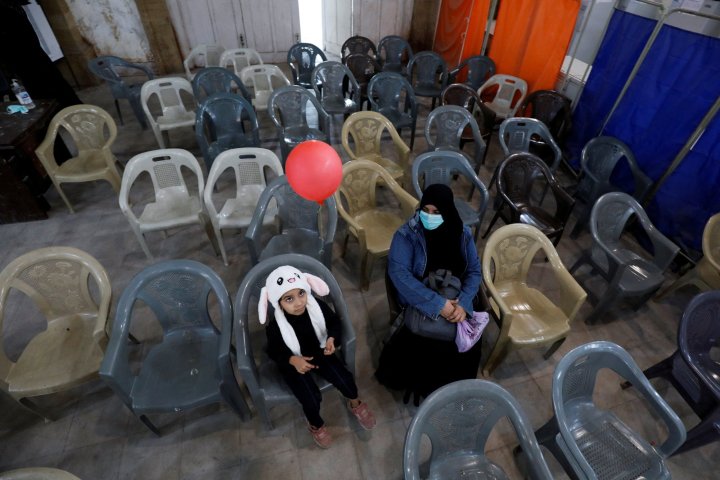
Chinese traditional medicine for Covid-19 delivers successful results
Pakistani health authorities have announced the completion of a successful clinical trial of Chinese traditional herbal medicine for treating Covid-19, as the South Asian nation enters a fifth wave of the pandemic driven by the Omicron variant.
The Chinese medicine, Jinhua Qinggan Granules (JHQG) manufactured by Juxiechang (Beijing) pharmaceutical Co Ltd, is already being used in treatment of Covid-19 patients in China. "Since it was tried on patients with different variants of Covid-19, we expect it to be effective on Omicron as on other variants," Professor Iqbal Chaudhry, director of the International Center for Chemical and Biological Science (ICCBS) where trials were conducted, told reporters.
The trials were conducted on 300 patients who were treated at home, and would work on mild to moderate Covid-19 cases, Dr Raza Shah, principal investigator in the trials, told reporters, adding that the efficacy rate was around 82.67%. The trials were approved by the Drug Regulatory Authority Pakistan.
Pakistan reported 4,340 Covid-19 cases on Monday, the highest recorded in a 24-hour period in three months. Karachi, the country's largest city, recorded a positivity rate - the percentage of tests coming back positive - of 39.39% at the weekend, the highest so far. "In the last seven days, Covid cases in Pakistan have increased by 170% while deaths have also increased by 62%," the National Command Operation Centre (NCOC), which is overseeing the pandemic response, said in a tweet on Monday.
Rewind to January 2020...
The early days of the pandemic, looking back two years to January 2020.
Covid-19 will continue to circulate for many years, says Pfizer CEO
Pfizer CEO Albert Bourla told French TV station BFM TV on Monday that the coronavirus will continue to circulate for many years to come, but that this current wave should be the last to have to lead to restrictions. Bourla also told BFM TV that the Covid vaccine was "safe and efficient" for children.
Beijing asks public not to order imported goods
Authorities in Beijing have advised the public to stop placing orders for items which must be imported from overseas, after a local woman reportedly tested positive for Omicron after opening a parcel. The women had no travel history.
Several Chinese cities went on high Covid-19 alert as the Lunar New Year holiday travel season started on Monday, requiring travellers to report their trips days before their arrival, as the Omicron variant reached more parts of the country.
Cities such as Luoyang in central China and Jieyang in the south said on Sunday travellers need to report their travel plans to communities, employers or hotels three days ahead of arrival.
The southwestern city of Yulin said on Saturday those who want to enter should fill in a digital form including their health credentials and trip details one day in advance.
The strategy has taken on extra urgency in the run-up to the Winter Olympics, to be staged in Beijing and neighbouring Hebei province starting 4 February.
Pfizer to boost Covid-19 pill production with French deal
Pfizer will add a production facility for its antiviral Covid-19 pill in France as part of a plan to invest 520 million euros ($594 million) in the country over the next five years, the US drugmaker said on Monday. The decision is part of Pfizer's strategy to boost global production of the pill, Paxlovid, which was found to be nearly 90% effective in preventing hospitalizations and deaths in patients at high risk of severe illness, according to clinical trial data.
The investment will initially involve the production of active pharmaceutical ingredient (API) for paxlovid at a plant run by French pharmaceutical group Novasep, Pfizer said, noting that additional Novasep facilities will be added next year. "Novasep will produce API for use in our manufacturing network, expected to contribute to the overall (global) effort to produce 120 million courses of treatment in 2022," it added.
The drug obtained emergency approval from the US drug regulator in December, and is being assessed for possible authorisation in the European Union. Pfizer said it expected Novasep's plant in Mourenx, in south-west France, to be incorporated into its global paxlovid supply chain in the third quarter of this year, with production being expanded to include other Novasep facilities in 2023.
Pfizer, which said it was too early to provide projections for the output from Novasep, said other sites around the world were also being used for the manufacturing of paxlovid, including in Ireland and Italy.
India’s Gennova working on Omicron-specific Covid-19 vaccine
India’s Gennova Biopharmaceuticals is working on an Omicron-specific Covid-19 vaccine candidate which could be ready approved for emergency use before the spring. Gennova submitted to India’s drug regulator phase II trial data for its mRNA vaccine candidate. The government said last year that the product was found to be “safe, tolerable, and immunogenic” in the participants of an initial study.
The fast-spreading covid-19 Omicron variant has pushed new infection rates sky-high leaving researchers scrambling to unlock its secrets. So far, evidence suggests that the strain that was first discovered in mid-November causes less severe illness than the Delta variant, but it is still dangerous.
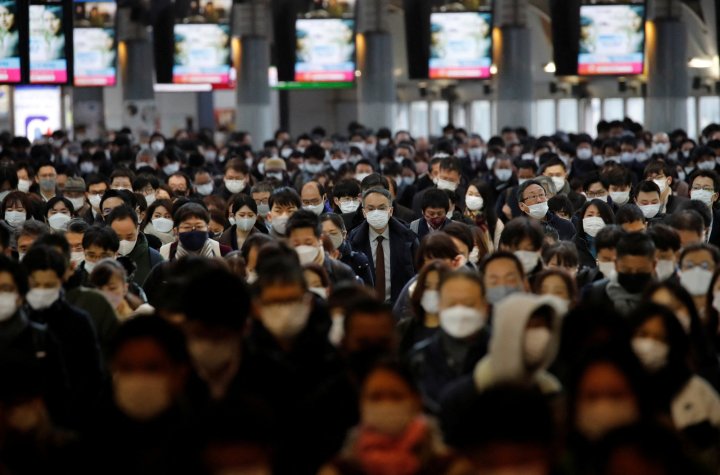
Japan to expedite booster shots, bolster island defence
Japan will bring forward Covid-19 vaccination booster shots by as much as two months, Prime Minister Fumio Kishida said on Monday, as the highly transmissible Omicron variant sends infections soaring nationwide. In a policy speech to parliament, Kishida also said Japan would fortify defence capabilities around its southwestern islands near Taiwan, and that the marked improvement of North Korea's missile technology should not be condoned.
With an upper house election slated later this year, containing the pandemic is critically important for Kishida. His predecessor, Yoshihide Suga, stepped down last year after his voter support crumbled as Covid-19 surged. "The Kishida administration puts the highest priority on its coronavirus response," the prime minister said in the speech marking the start of a regular session of parliament.
From March, booster shots for the elderly will be administered six months after the second shots, rather than the originally planned eight months, and the interval will be shortened by a month or two for other adults, he said.
Fewer than 1% of Japanese have received booster shots, far behind Britain's 53% and 24% in the United States, according to the Our World in Data project at the University of Oxford. Kishida underscored a tough battle ahead and asked for the people's support in fighting the pandemic. "We need to remind ourselves afresh this invisible enemy is tougher than expected," he said. "I am determined to press ahead calmly with our response based on the latest findings, while consulting specialists and not letting fear dominate us."
Corbevax, the patent-free Covid-19 vaccine
Texas-based microbiologist María Elena Bottazzi and her research team have developed a new Covid-19 vaccine, Corbevax. The big difference between Corbevax and the other Covid-19 vaccines currently approved for emergency use such as those developed by Pfizer and Moderna is that it is not patented - a deliberate decision.
Italian-born Bottazzi, the Associate Dean of the National School of Tropical Medicine at Baylor College of Medicine in Houston says that Corbevax is "the world’s Covid-19 vaccine."
The vaccine was developed using a similar process used to make the hepatitis B vaccine. That means that it is relatively easy to produce - and cheap, at a cost of a little over a dollar per dose.
In an interview with El Pais, Bottazzi explained how Corbevax can be produced on a large scale and why "you need to be a little more altruistic during a global pandemic. If Brazil wants to start producing it tomorrow, they have the technology, the factories and the know-how. Any manufacturer who can produce hepatitis B vaccines can produce this vaccine on a vast scale".
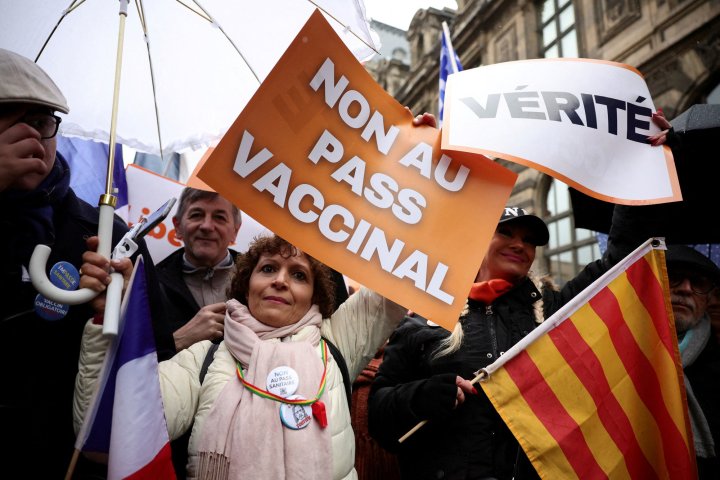
French parliament approves vaccine pass
France's parliament gave final approval on Sunday to the government's latest measures to tackle the Covid-19 virus, including a vaccine pass contested by anti-vaccine protestors. Lawmakers in the lower house of parliament voted 215 in favour to 58 against, paving the way for the law to enter force in the coming days.
The new law, which had a rough ride through parliament with opposition parties finding some of its provisions too tough, will require people to have a certificate of vaccination to enter public places like restaurants, cafes, cinemas and long-distance trains. Currently, unvaccinated people can enter such places with the results of a recent negative Covid-19 test.
Nearly 78% of the population is fully vaccinated, according to the Health Ministry on Saturday. President Emmanuel Macron, who is expected to seek a second term in an April presidential election, told Le Parisien newspaper this month that he wanted to 'piss off' unvaccinated people by making their lives so complicated they would end up getting the Covid vaccine.
Thousands of anti-vaccine protestors demonstrated in Paris and some other cities on Saturday against the law, but their numbers were down sharply from the week before, just after Macron's remarks. France is in the grips of its fifth Covid-19 wave with daily new cases regularly hitting record levels over 300,000. Nonetheless the number of serious cases putting people in ICU wards is much lower than the first wave in March-April 2020.
Covid-19 death rate approaches 2,000 once again
Experts have known for weeks that the more contagious Omicron variant of covid-19 is repsonsible for the sharp rise in cases across the country but some have suggested that the newer strain is less dangerous that other variants. However while the death rate amongst the infected is indeed lower, the rapid spread of Omicron across the country has meant that the United States is once again approaching the bleak milestone of 2,000 covid-19 deaths every single day.
Axios reports: Many with Omicron are contagious for more than five days
In December, the CDC lowered the quarantine guidance from ten to five days after data showed that many with covid are their most contagious earlier in their infection. A new report from testing in the NBA which will undergo peer review found that a "large percentage of Omicron-infected people still had viral loads over a certain threshold five days after their first positive test."
“Two doses of the vaccine offers very limited protection, if any" - Pfizer CEO
During an interview with Yahoo Finance on 10 January, speaking about the Omicron variant, Pfizer CEO Albert Bourla said: “We know that the two doses of a vaccine offer very limited protection, if any. The three doses with a booster, they offer reasonable protection against hospitalization and deaths. Against deaths, I think very good, and less protection against infection.”
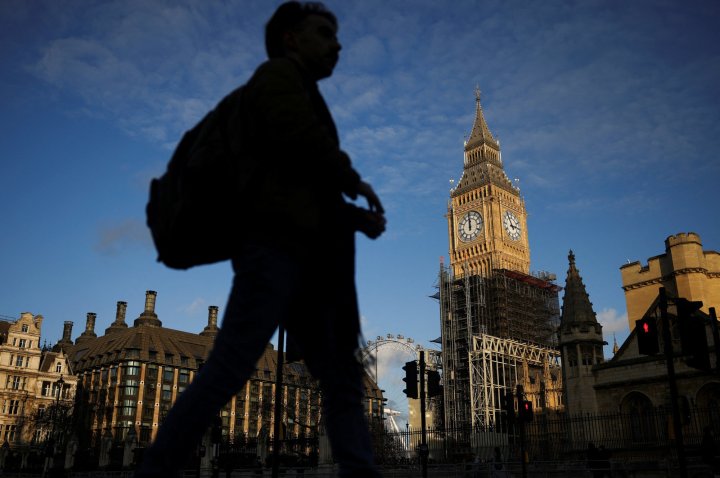
Covid review for England expected this week or next
A review of 'Plan B' measures to tackle the spread of Covid-19 in England could take place this week or early next, a senior government source said on Monday, part of efforts to move attention away from lockdown-breaking events at Downing Street. Prime Minister Boris Johnson hopes to reset his agenda after coming under fire for attending a gathering in the garden of his Downing Street office and residence in May 2020, when strict Covid-19 rules forbade almost all socialising. He has apologised for attending, but the growing reports of alcohol-fuelled gatherings at the heart of government have prompted calls for his resignation, including from some in his governing Conservative Party.
The removal of 'Plan B' measures - an order for people to work from home when they can, to wear masks in public places and use Covid-19 passes to enter some venues - would please many in his party who want to return to something more akin to normal life. The senior government source said the review could come this week, but possibly early next week.
The measures are currently set in place until at least 26 January after they were introduced in December to try to curb the spread of the Omicron variant. Education minister Nadhim Zahawi said earlier that infections and hospitalisations from the variant looked to be 'plateauing', raising hopes that some of the measures could be removed. "I'm confident that when we review this on the 26th of January, as we said we would do, then we'll be in a much better place to lift some of these restrictions," he told Sky News. Asked about the questions over Johnson's future, Zahawi said the prime minister "understands the level of hurt in the country".
Good morning and welcome to our live blog for Monday 17 January 2022, covering the latest news on the spread of the Omicron variant of Covid-19, with a particular focus on the situation in the United States.
